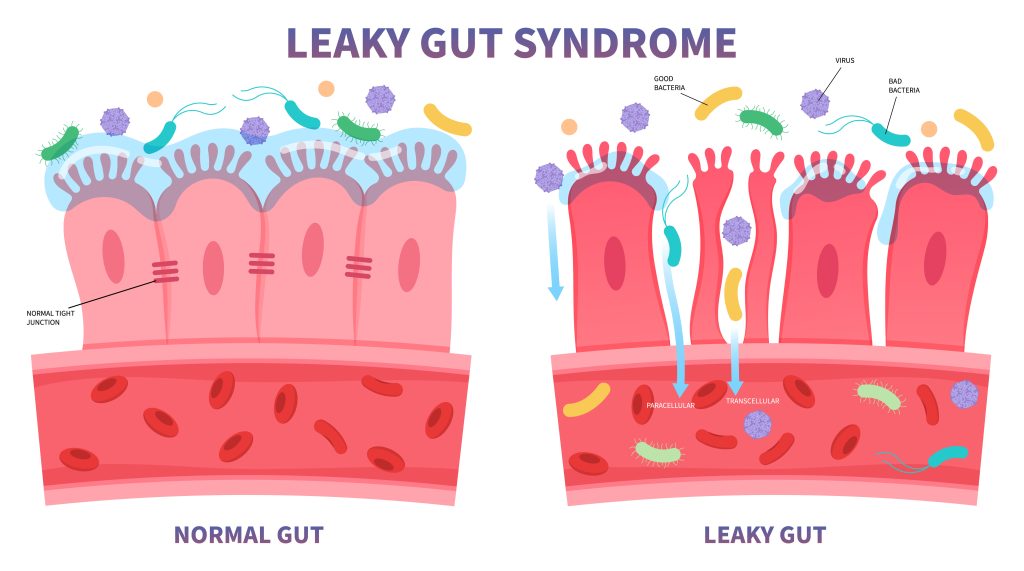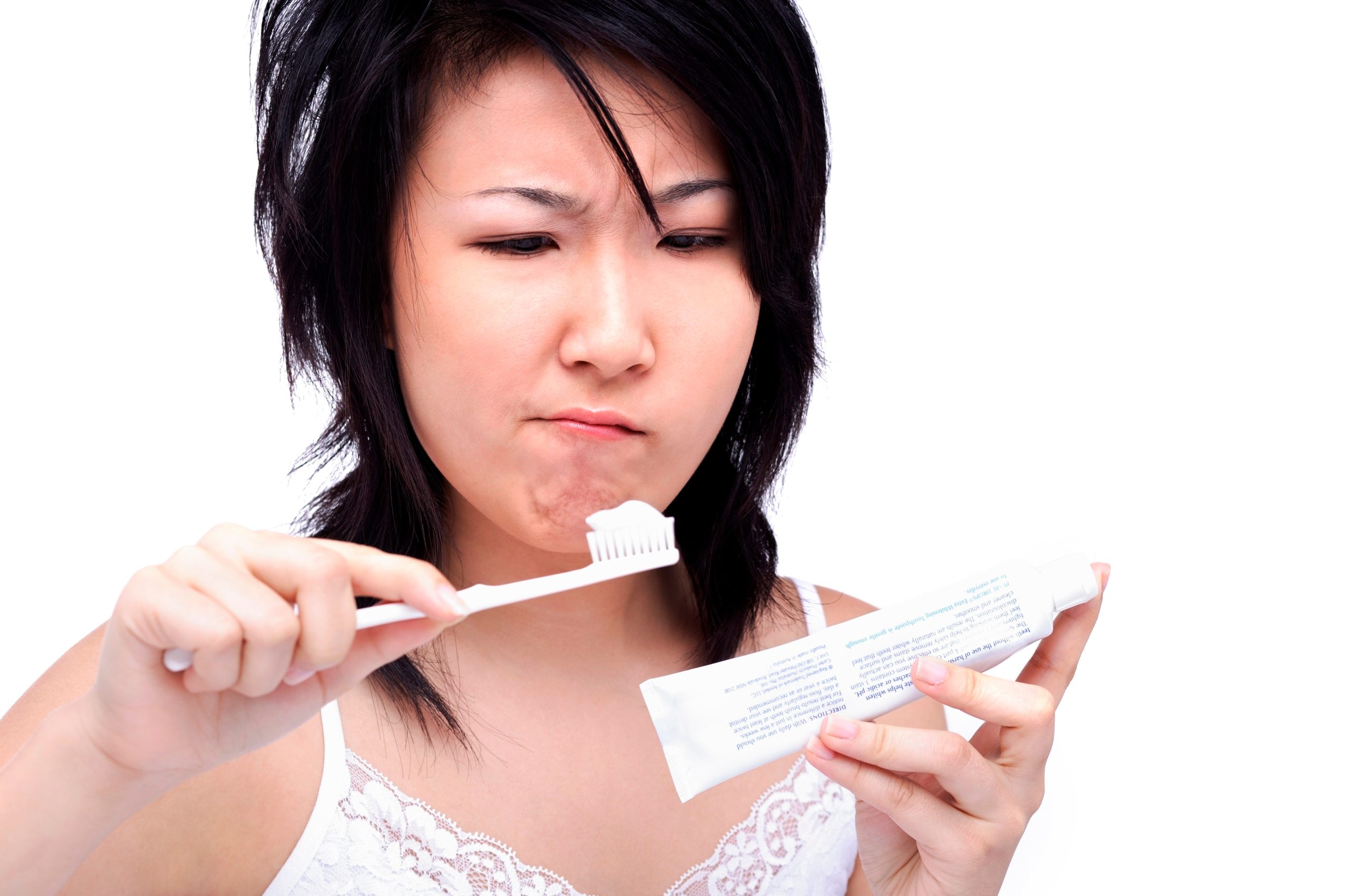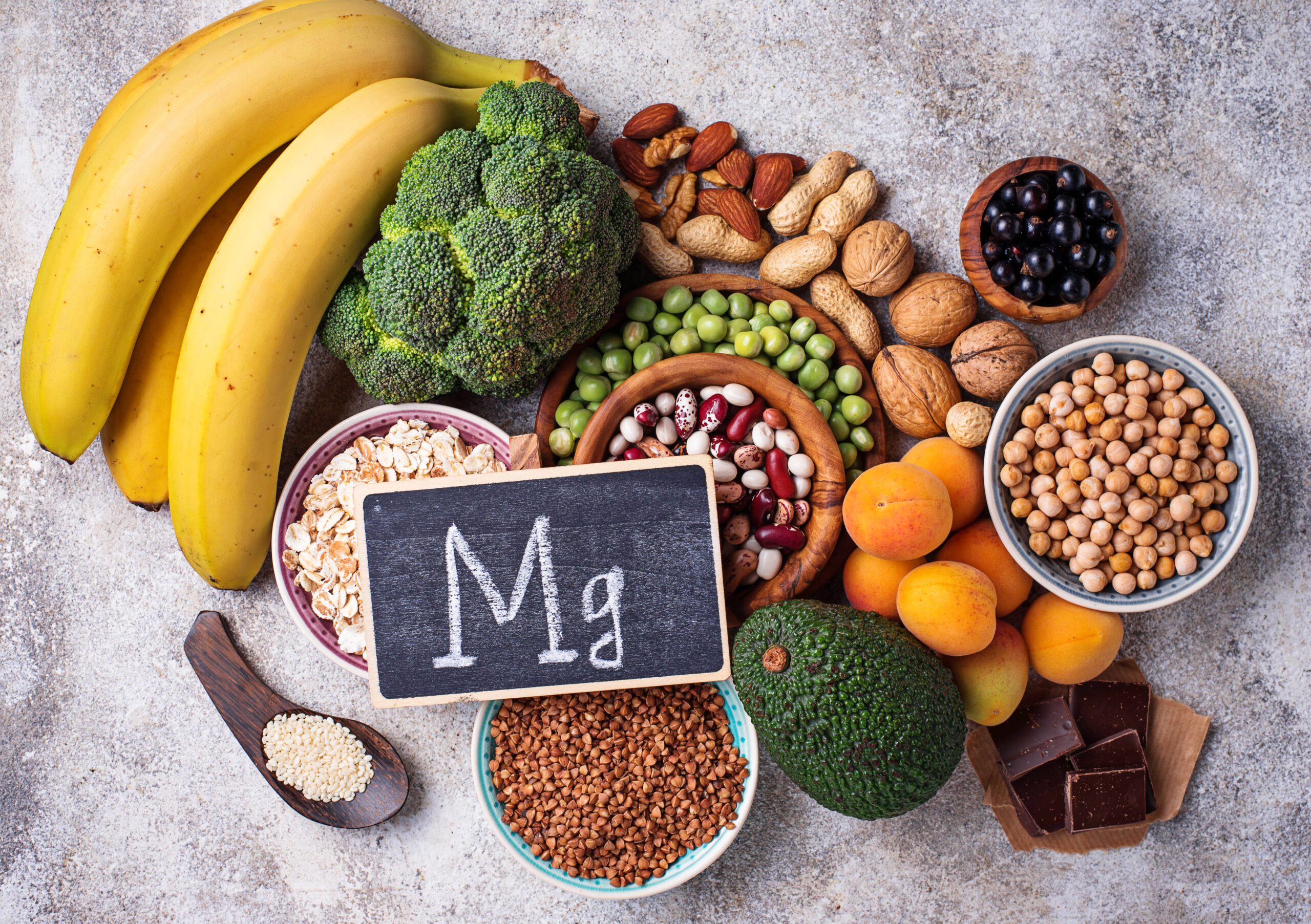You Are Unknowingly Consuming Toxins – Toothpaste, Artificial Sweeteners, Sugar, Cereal, And Even Fruit Juice
You are unknowingly consuming toxins in everyday items, even if you think you are making healthy choices. The unfortunate reality is that many products we consume on a daily basis contain harmful substances. We already know that toxins in heavily processed foods are bad for us so I won’t go into that here. Instead, let’s focus on the products many believe are healthy, but are actually making us sick.
You Are Unknowingly Consuming Toxins – Toothpaste
Toothpaste is one of the most commonly used and widely available products that almost everyone thinks is safe. However, there is a reason why toothpaste has the warning, “In case of accidental ingestion, contact the Poison Control Center immediately.” Most toothpastes contain toxins such as fluoride, sodium lauryl sulfate, petroleum-based oils, saccharine, and aspartame. These chemicals have been linked to various health issues including hormone disruption, skin irritation, and even death.1 2 3
By choosing a natural toothpaste, you avoid these toxins and take care of your oral health without compromising your overall well-being.
You Are Unknowingly Consuming Toxins – Artificial Sweeteners
Artificial sweeteners, often used as a sugar substitute in food and beverages like diet soda, have come under scrutiny for their side effects. Aspartame, saccharin, and sucralose are three of the most commonly used artificial sweeteners. These sweeteners have been linked to negative health effects such as headaches, dizziness, and digestive issues.4
Aspartame
Aspartame, also known as NutraSweet or Equal, is a popular artificial sweetener used in many diet and low-calorie products. It has been approved for use by numerous regulatory agencies around the world and is considered safe for consumption. However, there are some concerns about its potential health effects.
One major concern surrounding aspartame is its potential link to leukemia and lymphoma. This is due to the breakdown of methanol into formaldehyde in the body, which is a known carcinogen.5
Aspartame has also been linked to other health issues such as headaches, dizziness, and mood changes. This is because aspartame can affect the levels of neurotransmitters in the brain, which impacts cognitive function and mood.6
Moreover, some people have a sensitivity or intolerance to aspartame, causing adverse reactions when consumed. Symptoms of aspartame sensitivity include nausea, diarrhea, and stomach pain.7
Saccharin
Saccharin is a zero-calorie sugar substitute that is approximately 300-500 times sweeter than regular sugar. It has been used in various food and drink products, such as diet sodas, candies, baked goods, and even some medications.8
While saccharin may seem like a great alternative to sugar for those who are trying to watch their weight, its safety has long been debated by researchers and health experts. Studies have found that saccharin disrupts gut bacteria, leading to long-term health complications.9 10
Sucralose
Sucralose is an artificial sweetener that is widely used in food and beverage products as a sugar substitute. It was first discovered in 1976 and has since gained popularity due to its zero-calorie content and its ability to mimic the taste of sugar without the negative health effects. However, recent studies have raised concerns about the safety of sucralose consumption.11
In 2023, a study determined that sucralose is genotoxic after evidence of chromosomal damage in cells after exposure to sucralose.12
Another study found that sucralose consumption leads to changes in the gut microbiome, which is the community of bacteria and other microorganisms in our digestive system. These changes disrupt the balance of good and bad bacteria in the gut, leading to inflammation and increased intestinal permeability. In short, sucralose consumption is linked to the development of Leaky Gut Syndrome.13
Read more about Leaky Gut Syndrome.

You Are Unknowingly Consuming Toxins – Sugar
Sugar consumption has become a major health concern in today’s society. What makes it even more alarming is the fact that many of us are unknowingly consuming sugar in various forms without even realizing it.
One of the main reasons for this is the increased use of processed and packaged foods. These products may seem harmless, but they often contain hidden sugars in the form of high fructose corn syrup, dextrose, maltodextrin, sucrose, glucose, fructose, lactose, and many, many more.14
Moreover, sugar is not just limited to sweet treats or desserts. It can also be found in common foods such as ketchup, salad dressings, and even bread. This makes it challenging for individuals to keep track of their sugar intake and make informed choices about their diet.
Sugar is a toxin due to its addictive nature and detrimental effects it has on our bodies. When we consume sugar, our brain releases dopamine, a neurotransmitter that makes us feel good. This is why we often crave sugary foods, leading to overconsumption and addiction.15
Excessive sugar consumption, defined by more than 6 teaspoons a day, leads to serious health issues such as obesity and heart disease. It also causes inflammation in the body, leading to various chronic diseases, like autoimmune conditions.16
Read more about the dangers of sugar.
You Are Unknowingly Consuming Toxins – Cereal
Cereals have been a staple breakfast food for many people, from young children to adults. They are marketed as a quick and easy breakfast option that is nutritious and filling. However, there has been growing concern about the ingredients in cereals and their potential health risks. Many popular cereal brands contain high amounts of sugar, artificial flavors and colors, and preservatives.17
Glyphosate is a widely used herbicide in agriculture, and traces of it have been found in many popular cereal brands. High exposure to glyphosate has also been linked to various health issues like liver damage and reproductive problems.18
Read more about the dangers of glyphosate.
You Are Unknowingly Consuming Toxins – Fruit Juice
While this may come as a surprise to many, it is important to understand the potential dangers of consuming fruit juices and how they impact health. First and foremost, let’s clarify what exactly “100% fruit juice” means. This label typically indicates that the juice is made entirely from fruit, without any added sugars or flavors. However, this does not mean that the juice is free of toxins.
Fruit juices, like any other food product, are often contaminated with harmful substances during the production and packaging process. Pesticides, herbicides, and fungicides are among the most common toxins found in fruit juices.19
In some cases, fruits themselves may contain toxins. For example, apples contain a natural compound called patulin that can become toxic if the fruit is damaged or infected with mold. This toxin has been linked to negative health effects such as nausea, vomiting, and abdominal pain.20
Moreover, the way fruit juice is processed can also contribute to the presence of toxins. Pasteurization, a common method used to kill bacteria in juices, also destroys beneficial nutrients and enzymes while leaving behind harmful chemicals. High heat processing methods have been found to increase the levels of toxic compounds such as furans in fruit juices.21
In a recent study, there was a link between drinking fruit juice every day and undesirable weight gain. While fruit juice may seem like a healthy choice, it is important to note that it contains high levels of sugar and lacks the fiber found in whole fruits.22
To maintain a healthy weight, it is recommended to limit your intake of fruit juice and instead opt for whole fruits. Whole fruits provide the necessary fiber and nutrients along with the sugars found in fruit juice.

I Have A Sweet Tooth – I Can’t Live Without Sugar, Juice, Or Sugar Substitutes
Fruit is nature’s candy, packed with natural sugars and nutrients. Instead of reaching for a sugary snack, try satisfying your sweet tooth with some fresh fruit. Berries, apples, and citrus fruits are great options that provide a burst of sweetness without the added sugars found in processed treats.
If you must sweeten your food or drinks, opt for natural sweeteners such as honey, maple syrup, or agave nectar. These alternatives are less processed and contain more nutrients than refined sugar.23
For all the chocolate lovers out there, consider consuming dark chocolate, as it contains less sugar and is packed with antioxidants that have numerous health benefits.24
You Are Unknowingly Consuming Toxins – Toothpaste, Artificial Sweeteners, Sugar, Cereal, And Even Fruit Juice
It is important to be aware of the toxins that are found in common products. While these products may seem harmless, they contain harmful chemicals that have long-term effects on our health. It is important to read labels carefully and opt for natural and organic alternatives. Ideally, consume a balanced and healthy diet to minimize exposure to these toxins.
Read more about a healthy diet.
References
1 Ullah R, Zafar MS, Shahani N. Potential fluoride toxicity from oral medicaments: A review. Iran J Basic Med Sci. 2017 Aug;20(8):841-848. doi: 10.22038/IJBMS.2017.9104. PMID: 29085574; PMCID: PMC5651468.
2 Bondi CA, Marks JL, Wroblewski LB, Raatikainen HS, Lenox SR, Gebhardt KE. Human and Environmental Toxicity of Sodium Lauryl Sulfate (SLS): Evidence for Safe Use in Household Cleaning Products. Environ Health Insights. 2015 Nov 17;9:27-32. doi: 10.4137/EHI.S31765. PMID: 26617461; PMCID: PMC4651417.
3 Czarnecka K, Pilarz A, Rogut A, Maj P, Szymańska J, Olejnik Ł, Szymański P. Aspartame-True or False? Narrative Review of Safety Analysis of General Use in Products. Nutrients. 2021 Jun 7;13(6):1957. doi: 10.3390/nu13061957. PMID: 34200310; PMCID: PMC8227014.
4 Choudhary AK, Lee YY. Neurophysiological symptoms and aspartame: What is the connection? Nutr Neurosci. 2018 Jun;21(5):306-316. doi: 10.1080/1028415X.2017.1288340. Epub 2017 Feb 15. PMID: 28198207.
5 Landrigan PJ, Straif K. Aspartame and cancer – new evidence for causation. Environ Health. 2021 Apr 12;20(1):42. doi: 10.1186/s12940-021-00725-y. PMID: 33845854; PMCID: PMC8042911.
6 Lindseth GN, Coolahan SE, Petros TV, Lindseth PD. Neurobehavioral effects of aspartame consumption. Res Nurs Health. 2014 Jun;37(3):185-93. doi: 10.1002/nur.21595. Epub 2014 Apr 3. PMID: 24700203; PMCID: PMC5617129.
7 Shaher SAA, Mihailescu DF, Amuzescu B. Aspartame Safety as a Food Sweetener and Related Health Hazards. Nutrients. 2023 Aug 18;15(16):3627. doi: 10.3390/nu15163627. PMID: 37630817; PMCID: PMC10459792.
8 Azeez OH, Alkass SY, Persike DS. Long-Term Saccharin Consumption and Increased Risk of Obesity, Diabetes, Hepatic Dysfunction, and Renal Impairment in Rats. Medicina (Kaunas). 2019 Oct 9;55(10):681. doi: 10.3390/medicina55100681. PMID: 31601053; PMCID: PMC6843803.
9 Touyz LZ. Saccharin deemed “not hazardous” in United States and abroad. Curr Oncol. 2011 Oct;18(5):213-4. doi: 10.3747/co.v18i5.836. PMID: 21980248; PMCID: PMC3185898.
10 Del Pozo S, Gómez-Martínez S, Díaz LE, Nova E, Urrialde R, Marcos A. Potential Effects of Sucralose and Saccharin on Gut Microbiota: A Review. Nutrients. 2022 Apr 18;14(8):1682. doi: 10.3390/nu14081682. PMID: 35458244; PMCID: PMC9029443.
11 Schiffman SS, Rother KI. Sucralose, a synthetic organochlorine sweetener: overview of biological issues. J Toxicol Environ Health B Crit Rev. 2013;16(7):399-451. doi: 10.1080/10937404.2013.842523. PMID: 24219506; PMCID: PMC3856475.
12 Schiffman SS, Scholl EH, Furey TS, Nagle HT. Toxicological and pharmacokinetic properties of sucralose-6-acetate and its parent sucralose: in vitro screening assays. J Toxicol Environ Health B Crit Rev. 2023 Aug 18;26(6):307-341. doi: 10.1080/10937404.2023.2213903. Epub 2023 May 29. PMID: 37246822.
13 Méndez-García LA, Bueno-Hernández N, Cid-Soto MA, De León KL, Mendoza-Martínez VM, Espinosa-Flores AJ, Carrero-Aguirre M, Esquivel-Velázquez M, León-Hernández M, Viurcos-Sanabria R, Ruíz-Barranco A, Cota-Arce JM, Álvarez-Lee A, De León-Nava MA, Meléndez G, Escobedo G. Ten-Week Sucralose Consumption Induces Gut Dysbiosis and Altered Glucose and Insulin Levels in Healthy Young Adults. Microorganisms. 2022 Feb 14;10(2):434. doi: 10.3390/microorganisms10020434. PMID: 35208888; PMCID: PMC8880058.
14 White JR Jr. Sugar. Clin Diabetes. 2018 Jan;36(1):74-76. doi: 10.2337/cd17-0084. PMID: 29382983; PMCID: PMC5775006.
15 Liu WW, Bohórquez DV. The neural basis of sugar preference. Nat Rev Neurosci. 2022 Oct;23(10):584-595. doi: 10.1038/s41583-022-00613-5. Epub 2022 Jul 25. PMID: 35879409; PMCID: PMC9886228.
16 StudyFinds.org. (2023, April 6). More than 6 teaspoons of sugar daily increases risk of 45 different health problems. Study Finds. https://studyfinds.org/6-teaspoons-of-sugar-health/
17 Gaesser GA. Perspective: Refined Grains and Health: Genuine Risk, or Guilt by Association? Adv Nutr. 2019 May 1;10(3):361-371. doi: 10.1093/advances/nmy104. PMID: 30947337; PMCID: PMC6520038.
18 Schulte, C. (2021, May 24). United States Should Ban Use of Glyphosate on Food Crops. Human Rights Watch. https://www.hrw.org/news/2020/07/13/united-states-should-ban-use-glyphosate-food-crops
19 Meng Z, Li Q, Cong J, Huang Y, Wang D, Pan C, Fan S, Zhang Y. Rapid Screening of 350 Pesticide Residues in Vegetable and Fruit Juices by Multi-Plug Filtration Cleanup Method Combined with Gas Chromatography-Electrostatic Field Orbitrap High Resolution Mass Spectrometry. Foods. 2021 Jul 16;10(7):1651. doi: 10.3390/foods10071651. PMID: 34359521; PMCID: PMC8305287.
20 Bacha SAS, Li Y, Nie J, Xu G, Han L, Farooq S. Comprehensive review on patulin and Alternaria toxins in fruit and derived products. Front Plant Sci. 2023 Apr 3;14:1139757. doi: 10.3389/fpls.2023.1139757. PMID: 37077634; PMCID: PMC10108681.
21 Seok YJ, Her JY, Kim YG, Kim MY, Jeong SY, Kim MK, Lee JY, Kim CI, Yoon HJ, Lee KG. Furan in Thermally Processed Foods – A Review. Toxicol Res. 2015 Sep;31(3):241-53. Korean. doi: 10.5487/TR.2015.31.3.241. PMID: 26483883; PMCID: PMC4609971.
22 Nguyen M, Jarvis SE, Chiavaroli L, et al. Consumption of 100% Fruit Juice and Body Weight in Children and Adults: A Systematic Review and Meta-Analysis. JAMA Pediatr. Published online January 16, 2024. doi:10.1001/jamapediatrics.2023.6124
23 Phillips KM, Carlsen MH, Blomhoff R. Total antioxidant content of alternatives to refined sugar. J Am Diet Assoc. 2009 Jan;109(1):64-71. doi: 10.1016/j.jada.2008.10.014. PMID: 19103324.
24 Samanta S, Sarkar T, Chakraborty R, Rebezov M, Shariati MA, Thiruvengadam M, Rengasamy KRR. Dark chocolate: An overview of its biological activity, processing, and fortification approaches. Curr Res Food Sci. 2022 Oct 15;5:1916-1943. doi: 10.1016/j.crfs.2022.10.017. PMID: 36300165; PMCID: PMC9589144.




